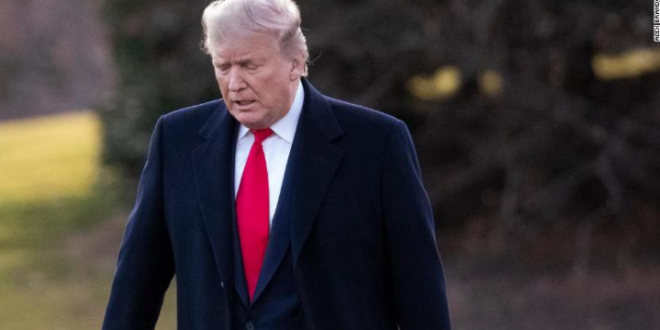“We caught a total monster. We took them out. And that should have happened a long time ago. We did it because they were looking to blow up our embassy,” Trump told reporters.
“We also did it for other reasons that were very obvious. Somebody died … people were badly wounded just a week before. And we did it. We had a shot at it … that was the end of a monster,” Trump added, referring to a recent rocket attack by an Iranian-backed militia group in Iraq, Khatib Hezbollah, that killed an American contractor and wounded several US military personnel.
Later on Thursday, Trump claimed that Soleimani was planning attacks on multiple US embassies.
“Soleimani was actively planning new attacks, and he was looking very seriously at our embassies, and not just the embassy in Baghdad,” Trump said at a rally in Toledo, Ohio, adding, “but we stopped him, and we stopped him quickly, and we stopped him cold.”
A senior defense official backed up the statements later on Thursday, telling reporters the US had intelligence about multiple plots and threats involving Soleimani, including one that involved a plan to attack the embassy using explosives.
The plot was separate and more sophisticated than the attempts to storm the US embassy in Baghdad by Molotov-cocktail wielding Khatib Hezbollah members and its supporters, an effort US officials have said was also orchestrated by Soleimani.
The official added that the US government was concerned about the threats posed by Iranian-linked groups to multiple US embassies in the period leading up to the strike on Soleimani, including the US embassy in Beirut, Lebanon.
The US military has deployed thousands of additional military forces to the Middle East in recent days to help bolster the security of US personnel and facilities, including US embassies in Baghdad and Beirut. The additional troops will allow the military to respond quickly in the event of a crisis.
Top US national security officials have continued to defend the Trump administration’s claim that it killed Soleimani in response to an impending threat to American lives, but the lack of evidence provided to lawmakers and the public has fueled lingering skepticism about whether the strike was justified.
After Iran launched more than a dozen missiles at two Iraqi bases that hold US troops earlier this week, questions have swirled over whether the administration fully considered the fallout from such a strike, and if an appropriate legal basis was established for the presidential authorization of lethal force.
CNN
commersant.ge
 Business Political Insights BPI.GE
Business Political Insights BPI.GE

















